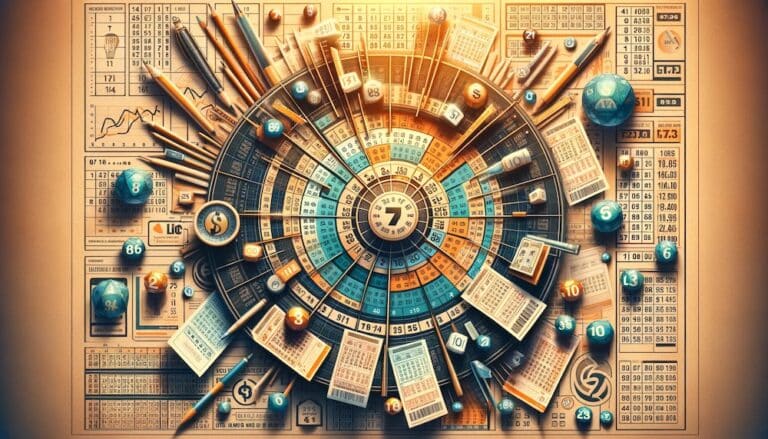Lottery tickets are more than just pieces of paper; they are gateways to dreams and possibilities. The concept of the lottery has been around for centuries, evolving from local raffles to massive, multi-national jackpots. This article delves into the world of lottery tickets, exploring the mechanics of the lottery, the excitement surrounding the results, and the statistical realities of winning.
The Allure of Lottery Tickets
Lottery tickets offer participants a chance at life-changing sums for a minimal investment. The simplicity of purchasing a ticket, coupled with the anticipation of potentially hitting a jackpot, creates an irresistible allure for many. Whether it’s a local draw with modest prizes or a colossal jackpot like Powerball or EuroMillions, the lottery captivates the imagination of millions worldwide.
How Lotteries Work
The basic premise of a lottery involves purchasing a ticket with a set of numbers. During a scheduled draw, a random selection of numbers is announced. If the numbers on a participant’s ticket match the drawn numbers, the ticket holder wins a prize based on the number of matches. Lotteries vary widely in format, from simple “pick X out of Y numbers” games to more complex setups with additional numbers and bonus balls.
The Chances of Winning
The odds of winning the lottery are famously slim, and they vary significantly between different games. For instance, the odds of winning the jackpot in a 6/49 format lottery (where players choose 6 numbers out of 49) are about 1 in 13.9 million. In contrast, the odds of winning the Powerball jackpot, which requires matching five numbers plus a special Powerball, are about 1 in 292.2 million.
Despite these daunting odds, smaller prizes have much better odds and still offer significant payouts. For example, matching a smaller set of numbers in these games might yield odds of 1 in 50 or 1 in 100, making smaller wins more feasible, though less lucrative.
Strategies and Misconceptions
Many players employ strategies to increase their chances, such as playing numbers that haven’t come up in a while or using systems to cover a wider range of numbers. However, since lottery draws are designed to be entirely random, no strategy can truly increase the odds of winning. The misconception that certain numbers are “due” to appear is known as the gambler’s fallacy, and it has no bearing on the outcomes of future draws.
Lottery Results and Their Impact
The announcement of lottery results is an event filled with anticipation. Many players tune in live, check online, or visit retailers to discover if they’ve won. While jackpot winners are rare, the stories of those who do win are often widely publicized, adding to the lottery’s allure.
For winners, the impact can be transformative, providing financial freedom and the ability to fulfill long-held dreams. However, winners also face challenges, such as managing their newfound wealth responsibly and dealing with privacy concerns.
Participating Responsibly
Given the slim odds of winning significant prizes, it’s important for players to approach the lottery as a form of entertainment rather than a genuine investment strategy. Spending only what one can afford to lose ensures that the lottery remains a fun, if unlikely, possibility rather than a source of financial stress.
Conclusion
Lottery tickets are a testament to the human love of chance and the hope for a sudden windfall. While the odds of winning big are slim, the dreams that lotteries inspire are vast and varied. As long as players participate responsibly, understanding the odds and the realities of lottery results, the tradition of chasing those dreams through a simple ticket purchase will continue to thrive. The lottery represents a unique blend of hope, chance, and excitement that captures the imagination like few other pastimes can.

Garry Sputnim is a seasoned journalist and storyteller with over a decade of experience in the trenches of global news. With a keen eye for uncovering stories that resonate, Alex has reported from over 30 countries, bringing light to untold narratives and the human faces behind the headlines. Specializing in investigative journalism, Garry has a knack for technology and social justice issues, weaving compelling narratives that bridge tech and humanity. Outside the newsroom, Garry is an avid rock climber and podcast host, exploring stories of resilience and innovation.


